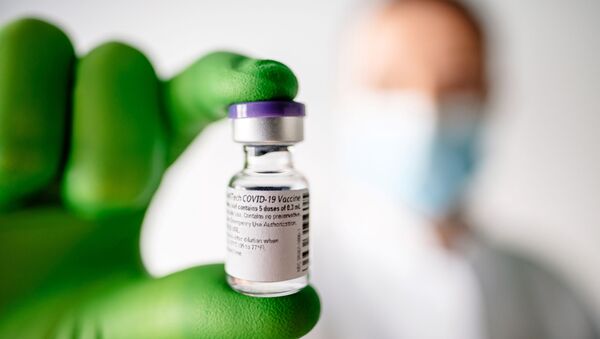The World Health Organisation (WHO) on Thursday issued its first ever emergency validation, this for the Pfizer-BioNTech coronavirus vaccine, making it the first vaccine to receive the agency's emergency approval since the beginning of the pandemic.
“This is a very positive step towards ensuring global access to COVID-19 vaccines. But I want to emphasize the need for an even greater global effort to achieve enough vaccine supply to meet the needs of priority populations everywhere,” said Dr Mariângela Simão, WHO Assistant-Director General for Access to Medicines and Health Products. “WHO and our partners are working night and day to evaluate other vaccines that have reached safety and efficacy standards. We encourage even more developers to come forward for review and assessment. It’s vitally important that we secure the critical supply needed to serve all countries around the world and stem the pandemic.”
The Pfizer/BioNTech #COVID19 vaccine today became the first vaccine to receive WHO validation for emergency use since the outbreak began.
— World Health Organization (WHO) (@WHO) December 31, 2020
Equitable global access to vaccines is crucial to combat the pandemic.
👉 https://t.co/7WNcHhc3z8 pic.twitter.com/Kyjv5RNzjB
According to WHO, the vaccine met its 'must-have' criteria for safety and efficacy, while the potential risks of using the new drug compound to address COVID-19 are offset by the benefits.
The Pfizer-BioNTech vaccine was also the first to be approved for emergency use in the United States. Shortly after that, an emergency use authorisation was also issued for a Moderna vaccine, prompting many political figures to publicly take the vaccines.
Earlier, the Pfizer-BioNTech vaccine was also approved in the United Kingdom, the European Union, Canada, Israel and other countries.
In Russia, a massive vaccination against the coronavirus has been ongoing, with the use of Sputnik V, the world's first registered COVID-19 vaccine.
As the coronavirus pandemic continues to rage across the globe, the United States remains the nation most affected by the pandemic, registering over 19.8 million cases and at least 344,000 related deaths.
In December, a new variant of COVID, said to be more contagious than other virus strains, was discovered in the United Kingdom. Despite dozens of countries swiftly suspending travel with the UK over concerns about the new variant, it has now been identified in Germany, Canada, Australia, the Netherlands, Canada, the United States and many other countries.


